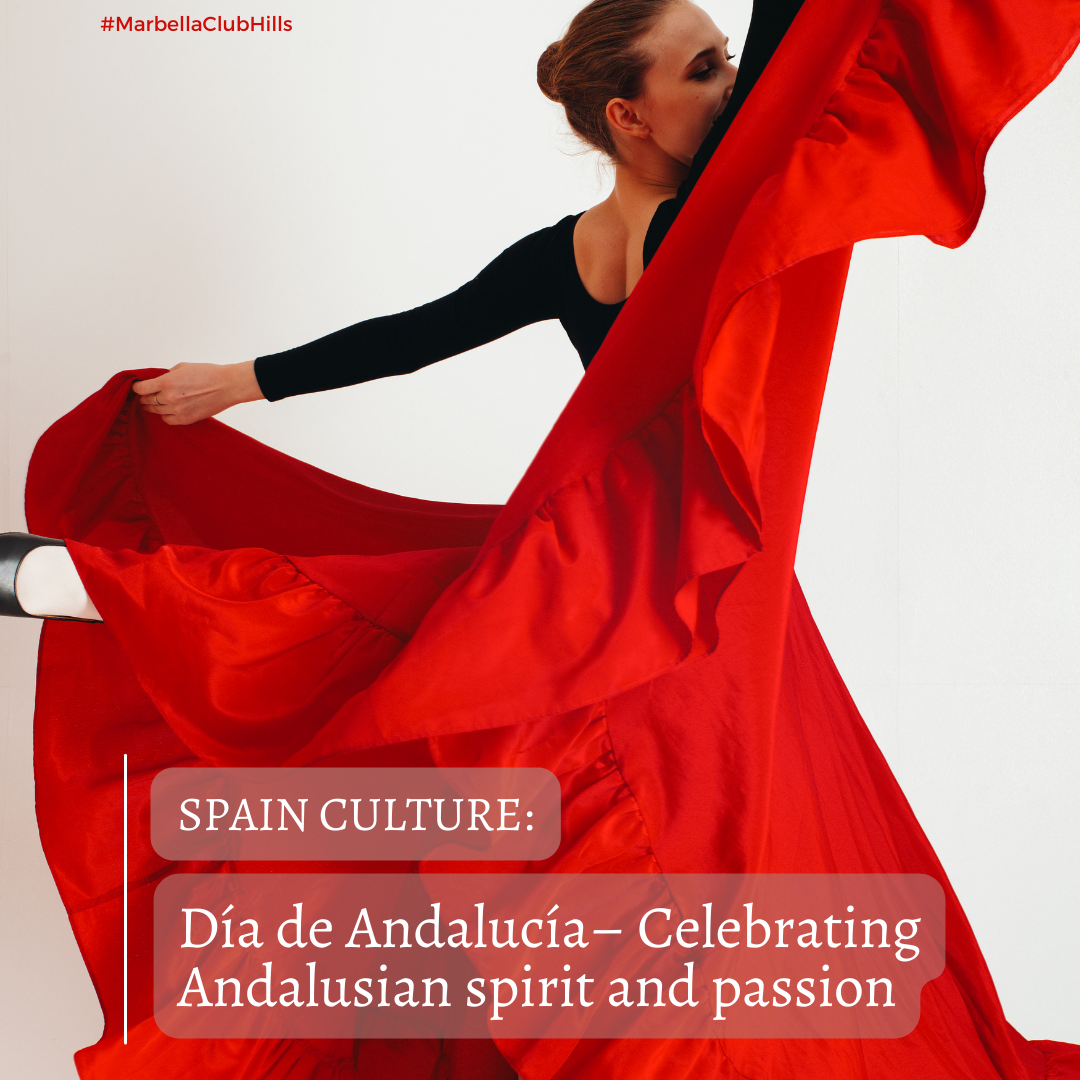28 February is the day to celebrate a place that represents Spain at its hottest and most passionate - a land where flamenco echoes through the cobblestone streets, where the aroma of savoury tapas fills the air, and where history whispers through the walls of ancient Moorish palaces.
Welcome to Dia de Andalucá, a vibrant celebration of culture, community, and identity in the heart of southern Spain. On this special day, Andalusians come together to honour their rich heritage and commemorate a pivotal historical moment. Come with us and discover what makes Andalusia so special.
History of Dia de Andalucá: Dia de Andalucá, celebrated on February 28th each year, traces its roots back to a significant moment in the history of the Andalusian region. In 1980, Andalusians voted in a referendum for autonomy, marking a pivotal step towards self-governance within Spain. This historic event symbolised the region's enduring quest for cultural preservation, political empowerment, and collective identity. Since then, February 28th has been commemorated as Dia de Andalucá, a day filled with pride, reflection, and celebration.
Andalusian Anthem and Flag: During Dia de Andalucá festivities, the region's anthem, "La Marcha Real de Andalucá" or "El Himno de Andalucá," resounds through the streets, instilling a sense of pride and unity among Andalusians. The flag of Andalusia, featuring horizontal green and white stripes with the Andalusian coat of arms in the centre, proudly flies overhead, symbolizing regional identity and heritage. These powerful symbols serve as reminders of Andalusia's rich cultural legacy and historical significance.
Flamenco Origins: Dia de Andalucá celebrates more than and honours the rich cultural heritage of Andalusia, including its iconic flamenco music and dance. Flamenco, with its roots deeply intertwined with Andalusian history and identity, serves as a focal point of celebration during the holiday, showcasing the region's passion and artistic expression.
Regional Flag: The flag of Andalusia, featuring horizontal green and white stripes with the Andalusian coat of arms in the centre, serves as a powerful symbol of regional identity. It was officially adopted on August 10, 1918, and is proudly displayed during Dia de Andalucá festivities, adorning streets, buildings, and public spaces throughout the region.
Culinary Traditions: Dia de Andalucá offers a feast for the senses, with traditional Andalusian cuisine taking centre stage. From mouthwatering tapas and refreshing gazpacho to savoury paella and sweet churros, the holiday is a celebration of the region's rich gastronomic heritage, showcasing the flavours and ingredients that define Andalusian cooking.
Holy Week Preparations: In the weeks leading up to Dia de Andalucá, communities across Andalusia begin preparations for Semana Santa (Holy Week), one of the most important religious observances in the region. The Andalusians meticulously plan and execute intricate processions featuring ornate floats, religious icons, and solemn rituals, drawing thousands of visitors and pilgrims from around the world.
Cultural Diversity: Andalusia is a region known for its cultural diversity, shaped by centuries of influences from various civilizations, including the Moors, Romans, and Visigoths. Dia de Andalucá provides an opportunity to celebrate this diversity, with events and activities that showcase the region's rich tapestry of traditions, languages, and customs.
Join us in celebrating Dia de Andalucá next year and experience the magic of southern Spain firsthand. Whether you're exploring the historic streets of Seville, savouring the flavours of Granada, or soaking up the sun on the Costa del Sol, Andalusia welcomes you with open arms. Come, discover the beauty, culture, and spirit of Andalusia - and let the magic of the place inspire you!


